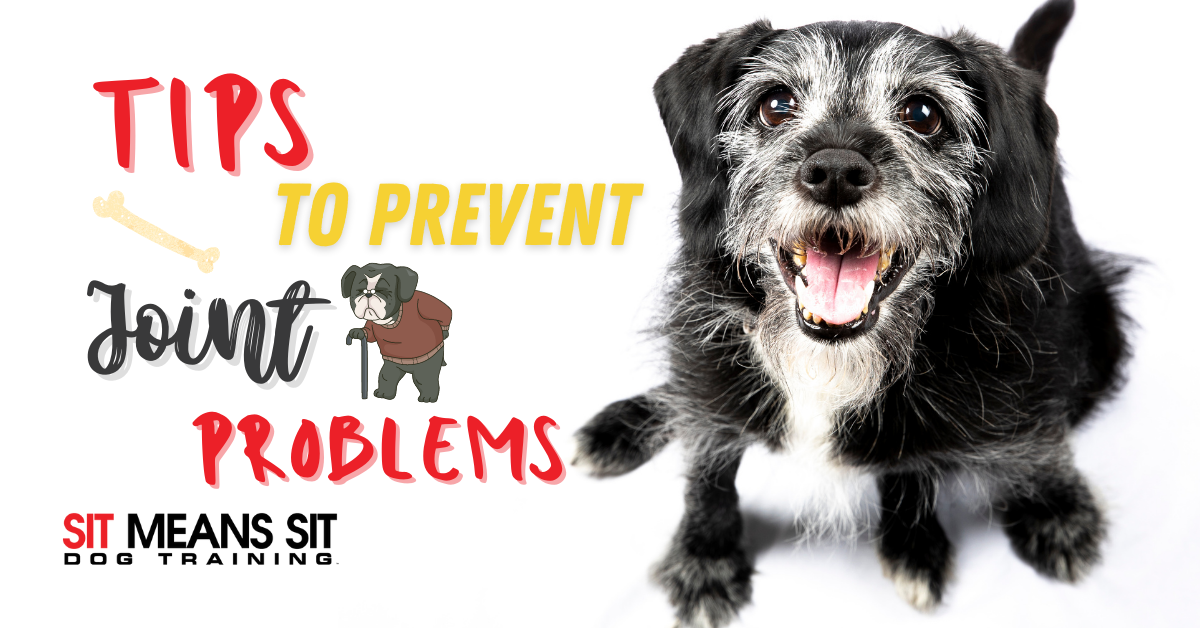
Tips To Prevent Joint Problems In Dogs
Have you noticed your dog uncomfortable during playtime or struggling to walk upstairs? This could be a sign of poor joint health. Dogs can be predisposed to joint health problems, but they can even develop them if they’re not.
Here are some tips to help prevent declining joint health in your dog!
Why Is Joint Health Important?
Joints are the connecting point of two bones and help the body move properly and comfortably. Joints help prevent damage in the skeleton when one jumps, walks, runs, or just moves in general. Joints in conjunction with cartilage, as well as fluids and ligaments, help soften the effect on the bones that come with everyday bodily movement.
Joints are hard to repair when damaged, which is why it’s so important to prevent deteriorating!
Why Do Dogs Have Joint Problems?
Dogs can develop poor joint health for a variety of factors such as:
- Age: Dog’s joint cartilage begins to deteriorate when they grow older. This can cause problems like arthritis in senior dogs, but also in younger pooches.
- Breed: Large dog breeds such as the beloved Golden Retriever are more inclined to develop arthritis and other problems with impaired movement.
- Weight Gain or Excess: Excess weight on a dog can lead to stressing the joints and unnecessary pressure that negatively impacts both the joints and cartilage.
Joint Health Problems Can Be Caused By:
- Hereditary Defects
- Dogs can be predisposed to joint issues like arthritis due to their lineage. Joint problems are commonly caused by dogs inheriting them.
- Trauma
- Trauma or accidents can damage the body and joints causing lasting problems like cartilage deterioration or joint and bone damage.
- Infection
- Infection can, unfortunately, lead to rapid deterioration of the joints and cartilage due to bacteria in a dog’s system.
Does Your Dog Suffer From Joint Pain?
A lot of dogs are prone to developing joint pain. But dogs don’t often show signs of pain unless they’re in a lot of discomfort. Look out for these signs when accessing your dog’s joint pain:
- Limping: Limping or using one preferred side of their body is a good indication that your dog has some sort of joint pain. Dogs often do this to ease the pain they feel on a particular joint.
- Standing on front legs: Standing on just the front legs can indicate your dog is dealing with hip dysplasia, a common form of arthritis.
- Refusal to use stairs or jump: Inclines and jumping greatly impact the joints by putting pressure in the movement of coming down.
- Lethargy or depressive behavior: Dogs are usually full of life, even when they’re seniors. Joint pain can severely limit their ability to do their usual activities so they become weakened and depressed.
- Licking the affected area: Dogs often lick injuries to comfort themselves, so it isn’t abnormal for them to do this in the area they’re facing joint pain in.
Helping To Improve Their Joint Health
Massage Your Dogs Joints- Always consult your vet before trying to massage their joints, but this practice can help ease a lot of the pain they feel. When massaging, ease the area in long strokes to warm up the joints then continue to gently massage the affected area unless your dog indicates that it is painful for them.
Joint Nutrition
There are various nutrition essentials to help positive joint health like freshwater, protein, omega 3’s, natural inflammatories (blueberries, fatty fish, sweet potatoes, etc.), hyaluronic acid, etc. You can get most of these essentials in the form of supplements or natural foods. Essentials will help reduce inflammation, build up cartilage, prevent joint deterioration, cell rejuvenation, and lubrication of the joints.
Doggie Supplements
Supplements can be a great way to get in extra nutrients to help fight against joint problems. Consult your vet about what they suggest you buy in terms of supplements for your dog and check out this list of dog vitamins and supplements!
Revamp Their Environment
There are some small steps you can take to make sure your dog is more comfortable at home! Getting them a soft and low-to-ground bed can help relieve a lot of the discomfort they feel, a memory foam bed is a great option for combating joint pain.
Flooring can also be an issue, especially if the floors around your home are slippery as your dog can stress their joints if they happen to slip and try and catch themselves. Putting rugs around the areas your dog frequents most is a quick and easy fix for this! Exercise- Although it may be hard for your dog to exercise if they’ve already developed joint pain, low-impact activities like walking or swimming can help relieve arthritis pain. It’s important not to push your dog to try and do any exercise they used to like running or jumping as this can stress the joints and cause even more inflammation.
